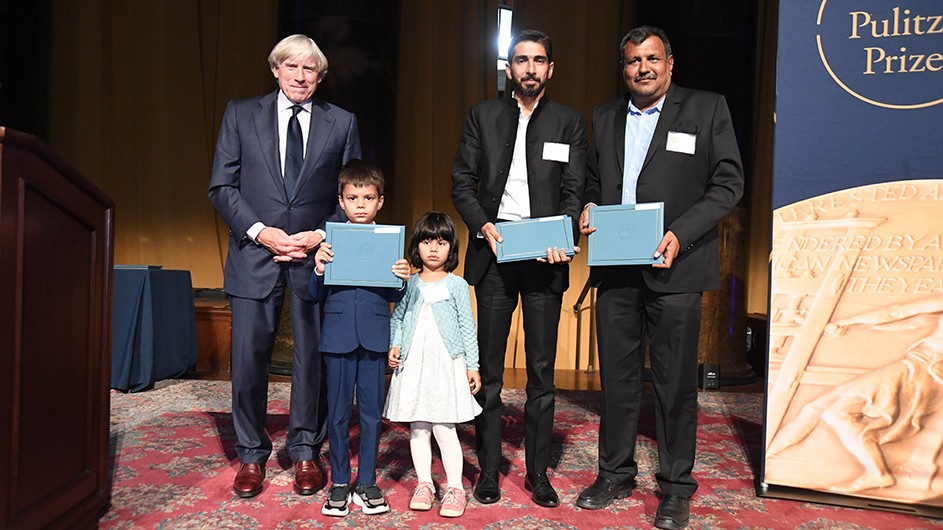Remarks from the 2022 Pulitzer Awards Ceremony
At the ceremony honoring the 2022 Pulitzer Prize recipients, President Bollinger gave brief opening remarks and presented the recipients with their awards. Bollinger is a member of the Pulitzer Prize Board.

October 20, 2022
Transcribed from recorded remarks
The Pulitzer Prizes were formed in 1916-17, along with the School of Journalism in 1912. This campus was created in the first decades of the 1900s and Columbia University’s signature core curriculum began in 1919. The First Amendment itself—the first Supreme Court cases interpreting the first amendment—were in 1919. All of this has lived, survived, and grown up together.
For me personally, this is a stunning interweaving of things that all draw their mission from a similar source and share a philosophy of life that has been at the center of my existence. Whether you are nurtured in the academy or in journalism, your central purpose is to discover truth, to enlarge human understanding, and to create a world out of that knowledge through a process of vigorous debate. Over the last century these institutions have both been witness to and participants in the highs and lows of human behavior (sometimes complicit in those lows, but always present and accounted for in the highs). A half-century ago, in the 1950s and 1960s, we saw a profound change in universities and journalism and in the First Amendment and the Constitution generally, which altogether forge the world we have lived in ever since. In the realm of the Constitution, I think of decisions like Brown v. Board of Education, New York Times Co. v. Sullivan, Brandenberg v. Ohio, Pentagon Papers, Roe v. Wade, Bakke and other affirmative action cases—these and others like them set the stage for the decades to come.
"If the world turns again, as it has so tragically so many times over the past century, we can certainly all take part and feel a sense of optimism, still, from the fact that the best of the human spirit continues to be manifest in the work honored by the Pulitzer Prizes."
In so many respects, this world is now under attack, and in many ways, crumbling. It is hard to explain to oneself, let alone to others, how the world in which one began life is now at risk of being dissolved towards the end of life. I have now spent two decades serving on the Board of the Pulitzer Prizes, a happy entitlement that comes with my role as President of Columbia. (And yes, it is true, that I chose to become President of Columbia so I could serve on the Pulitzer Board.) Throughout this entire time, this experience has been a joy. It has been a joy because primarily it is a window into the world at its most hopeful. To see, year after year, some of the best of history and fiction and poetry and biography and non-fiction and drama and music and of the broad terrain of journalism—this has been about as heartening of an experience as one can imagine. If the world turns again, as it has so tragically so many times over the past century, we can certainly all take part and feel a sense of optimism, still, from the fact that the best of the human spirit continues to be manifest in the work honored by the Pulitzer Prizes.
Every one of you who is being recognized this evening should know that the Pulitzer Prize is not only for your extraordinary work but also for what you represent in the collective effort, and part of a much bigger enterprise to bring understanding and values to the world, that is never finished.